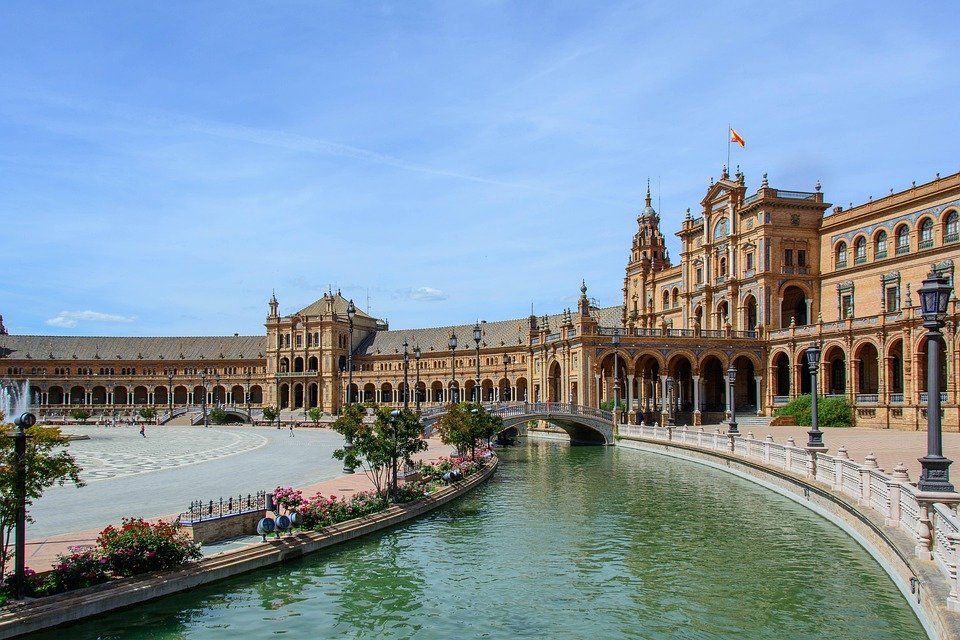Wondering when to go to Seville without running into huge crowds or bad weather? As one of Spain's most vibrant cities, Seville offers a unique blend of culture, history, and stunning architecture. But the best time to visit Seville really depends on several factors: the weather, your budget, local events, and what you want to experience during your trip. Let's dive into how to choose the ideal time to visit Seville!
Overview of Seville’s Climate
Seville enjoys a Mediterranean climate, characterized by hot summers and mild winters. The weather in Seville can be divided into two main seasons: a dry season from May to September and a cooler, wetter season from October to April.
-
Summer (June to August): Expect blazing heat with average high temperatures soaring above 35°C (95°F). It's dry and sunny, but also sweltering for many travelers. Perfect for you if you love that sun-soaked vibe and don't mind the sweat.
- Winter (December to February): Winters are mild and rainy, with temperatures ranging from 6°C to 15°C (43°F to 59°F). Although you might need a jacket, it's a great time to explore without the sticky heat.
Spring (March to May) and autumn (September to November) offer the most comfortable temperatures and represent the transitional seasons. Spring, particularly, sees blooming flowers and some of the most lively festivals.
Month-by-Month Breakdown
January – February: Winter Wonders
- Weather: Generally cool, averaging around 10°C to 15°C (50°F to 59°F).
- Events: The Festival of Three Kings (early January) is a delightful experience for families.
- Pros: Fewer tourists, lower accommodation costs.
- Cons: Occasional rain, chillier evenings.
- Best For: Budget travelers and those wanting a quieter experience.
March – May: Spring Fling
- Weather: Mild temperatures, ranging from 15°C to 25°C (59°F to 77°F).
- Events:
- Semana Santa (Holy Week) in March or April is a breathtaking display of religious processions.
- Feria de Abril (April Fair), a vibrant celebration of flamenco, food, and festivities.
- Pros: Ideal weather, colorful events.
- Cons: Prices starting to rise, especially during Semana Santa.
- Best For: Culture vultures and photographers.
June – August: Summer Sizzle
- Weather: Hot, with temperatures ranging between 25°C to 40°C (77°F to 104°F).
- Events: Music festivals and outdoor events, though many locals take vacation during the hottest months.
- Pros: A buzzing atmosphere with lots of activities.
- Cons: Extreme heat can be oppressive; many shops close for siesta.
- Best For: Beach lovers and those who enjoy a vibrant nightlife.
September – November: Autumn Appeal
- Weather: Comfortable temperatures begin to drop, averaging 20°C to 30°C (68°F to 86°F).
- Events:
- Festival of the Film in October.
- Delicious tapas festivals.
- Pros: Pleasant weather, fewer tourists than summer.
- Cons: Some events, like the outdoor shows, wind down as the weather cools.
- Best For: Foodies and those seeking a slowly-paced travel experience.
Tips Based on Travel Style
Choosing the ideal time to go to Seville largely depends on what you're looking to get out of your trip. Here are some tailored tips:
-
For Budget Travelers: The winter months (January and February) provide the cheapest option with fewer crowds and lower accommodation costs.
-
For Avoiding Crowds: Late autumn (November) and late winter (January) are wonderful times to experience the charm of Seville without the hustle and bustle.
-
For Outdoor Activities or Cultural Events: Spring holds the crown! With lovely weather and numerous festivals, it's perfect for those who want to soak up the local culture outdoors.
- For Romantic or Solo Trips: Early spring (April) is great for romantic escapes with the city in bloom, while outdoor cafés buzzing in fall charm both solo travelers and couples alike.
Remember, it really depends on what kind of experience you're looking for in Seville. Some travelers love April because of the lively atmosphere during the festivals, while others aim for those quiet winter vibes.
FAQ
Is January a good time to visit Seville?
Yes, it's quieter and more affordable, but it may be chilly.
When is the rainy season in Seville?
Rain is most common from October to March, particularly in late autumn.
What's the cheapest time to visit Seville?
The months from January to March generally offer the best deals on hotels and flights.
What's the peak season in Seville?
The peak season falls in late spring (April) during the Holy Week and the April Fair, attracting many tourists.
In Seville, whether it's the joy of a spring festival or the serenity of a winter walk, the possibilities are endless. Whatever the season, this city invites you to explore its beauty and charm in your own unique way. Ready to book your trip yet?








